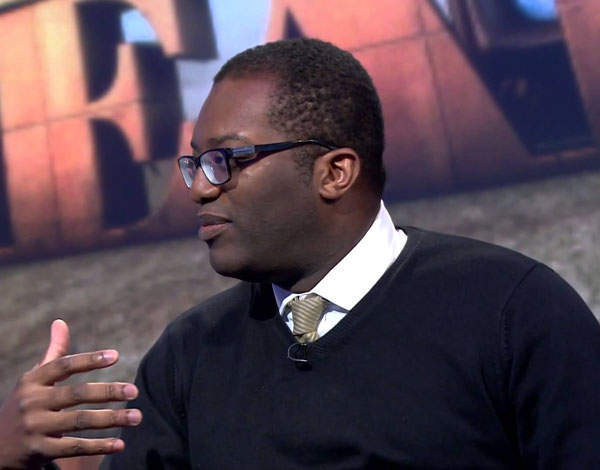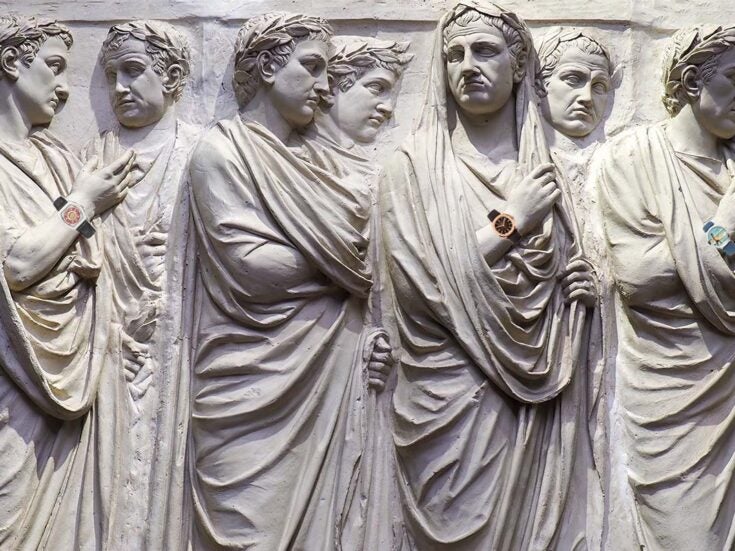

Kwasi Kwarteng, the Tory MP for Spelthorne, is the son of Ghanaian immigrants and was educated at Eton as a scholarship boy, where he was a contemporary and friend of Boris Johnson. His first historical book, Ghosts of Empire, was widely acclaimed for its original analysis. His second book covers familiar ground, although perhaps from an unfamiliar point of view. ‘The need to pay for wars was the principal engine of modern finance,’ Kwarteng declares.
His narrative begins with the Holy Roman Emperor Charles V declaring bankruptcy in 1557, which is soon followed by Spain’s plunder of Aztec and Inca gold in order to finance his wars in Europe. The next four centuries are covered in just 72 pages.
The claim that this is a 500-year history is therefore somewhat misleading. The bulk of Kwarteng’s book concerns the 20th century, although it would be hard to argue that this period was not more crammed with significant economic events than the four centuries that preceded it.
Given his particular approach, certain familiar events take on a different significance. For example, both the South Sea Bubble and the ‘Mississippi System’ created by the expatriate Scot John Law at the behest of the French monarchy, which are customarily examined for evidence of bubble mania and the madness of crowds, are here treated as rational exercises in problem-solving.
‘Behind all the drama and fascination of the bubbles,’ Kwarteng writes, ‘both companies represented an early attempt to solve the problem of government indebtedness’ by converting it into equity.
There are also some nice paradoxes to consider in the ensuing century, once the gold standard and Victorian fiscal rectitude were well and truly in place.
‘Despite the outward show of respectability,’ Kwarteng reminds us, ‘Victorian finance was often a highly speculative affair. The British government may have “virtually balanced” its budget in every year from 1815 to 1914, but at least four out of eight governors of the Bank of England between 1833 and 1847… suffered the humiliation of personal bankruptcy.’ Today governors of the Bank of England merely lecture us about moral hazard, but in the age of Trollope they actually lived it.
It is pleasant to read a modern Tory, on the free-market wing of the party, who is able to give a dispassionate assessment of Keynes as an economic thinker. Kwarteng does not hide his admiration for Keynes as a currency conservative, who noted in an article for the Morning Post in October 1914 that Germany was issuing ‘large quantities of inconvertible paper money’ while Britain retained gold convertibility for foreign transactions, if not domestic ones.
Kwarteng explains that it was vigorous tax-raising by Lloyd George that helped pay for our role in the conflict, in the form of an income tax that was raised from 6 per cent to 30 per cent, but also of an excess profits tax that was introduced at a rate of 50 per cent and gradually raised to 80 per cent. The latter shows that Britain taxed its capitalists ‘more rigorously than any of the other belligerents’.
Winning wars is often as burdensome, if not more so, than losing them. The economic success of Japan after the Second World War had much to do with native know-how and industrial practices, but it also happened because ‘under the canopy of American support and friendship, Japan did not have to embark on the ruinous defence expenditure which had overburdened its budgets in the 1930s’.
Kwarteng is a gifted writer, able to make discussion of dry matters fizz and bubble. His prose is never dull and his book offers an intriguing take on modern economic history that will delight the general reader.
One puzzle that gold bugs and paper-money scourges have been unable to answer is why the gold price has not soared in a time when governments have taken on eye-wateringly large sums of debt through bailouts and QE.
The answer, suggests Kwarteng, is that 10 per cent is about right as the ratio of the value of the world’s gold stock to global GDP. So, while we are unlikely ever to return to a strict gold standard, he concludes, the world’s investors ‘have informally adopted one’.








